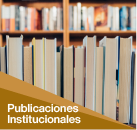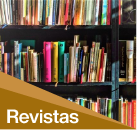Incorporación de las Sabidurías Sobre el Cuidado de la Salud con Plantas Medicinales en el Área de Ciencia y Tecnología del Tercer Grado de Primaria
Fecha
2024-06-20Autor
Mesicano Quispe, Zunilda
Nivel de Acceso
Acceso AbiertoMetadatos
Mostrar el registro completo del ítemResumen
La investigación realizada tiene por cumplir búsqueda detallada de información secundaria sobre la protección de la salud con plantas naturales desde la tradición de los pueblos originarios y sus posibilidades de inclusión en el marco de un currículo intercultural para desarrollar las capacidades de niños y niñas en este campo, recuperando las sabidurías tradicionales de sus familias. La exploración bibliográfica ha permitido identificar diversas experiencias en Latinoamérica y en el Perú, en que los docentes en coordinación con sabios de las comunidades ponen atención en la recuperación de estos saberes, elaborando colecciones de plantas, recetarios y asociando el conocimiento al desarrollo de biohuertos medicinales. Otro tanto han impulsado este trabajo en coordinación con las instancias formales del cuidado de la salud, como los centros de salud que se han abierto a estas propuestas de medicina intercultural. Desde el marco conceptual se asume que la medicina herbolaria constituye un sistema complejo de cultivo, recolección, selección y tratamiento de las plantas en diversas formas para proporcionar cuidados de salud tempranos que devuelven la salud, sobre todo a los niños y niñas. Teniendo alrededor de la escuela las plantas medicinales. Comúnmente se contraen enfermedades estacionales y de mediana gravedad, en este sentido conocer esas sabidurías les permite autocuidarse y cuidar también en su familia a sus hermanos menores o a los adultos de la familia que lo requieran, constituye así un aprendizaje para la vida que todas las escuelas deberían promover para evitar las enfermedades, cuidar la salud de manera natural que sin la salud no hay felicidad. Abstract This research work reports a detailed search for secondary information on health care with medicinal plants from the tradition of the original peoples and their possibilities of inclusion in the framework of an intercultural curriculum to develop the capacities of boys and girls. in this field, recovering the traditional wisdom of their families. The bibliographic exploration has made it possible to identify various experiences in Latin America and Peru, in which teachers, in coordination with wise men from the communities, pay attention to the recovery of this knowledge, preparing collections of plants, recipe books, and associating knowledge with the development of medicinal organic gardens. Similarly, they have promoted this work in coordination with formal health care instances such as health centers that have opened up to these intercultural medicine proposals. From the conceptual framework, it is assumed that herbal medicine constitutes a complex system of cultivation, collection, selection and treatment of plants in various ways to provide early health care that restores health, especially to children, who are sick having around them. from the school the medicinal plants that commonly contract seasonal and medium-severity diseases, in this sense, knowing these wisdoms allows them to take care of themselves and also take care of their younger siblings or adults in the family who require it in their family, thus constitutes learning for life that all schools should promote to prevent diseases and take care of health in a natural way that without health there is no happiness. Keywords: Ancestral medicine, health care, herbal wisdom, medicinal plants, health at school, wise people with medicinal plants. Pisi rimay Qhawarichisaq kay t’aqwirisqa llank’asqata pachanmanta k’uchkisqa allin qhaly kawsaypaq hampi qurakunawan ñawpa ch’awchunchiskunaq yachayninta yachay wasipi yachaqkunaman yachachinanchikpaq, aqnapi ñawpa yachaykuna achwanta kawsarichinapaq, ura patampi ñankuna churasqa kachkan kay llank’ayman rikch’akuq latinoamerica peru suyo nisqanchikmanta, hamawt’akunapas rimaynakuspa kaq ayllupi yachaysapa runakunawan yachaykunata kawsarichiyta anchata munachkanku, hampi qurakunata machkarispa chaymanta huñurispa hampikunata chakrapi llank’aspa, hinallataq centro de salud nisqawan sumaqta rimaynakuspa chay ukhupi chanincharisqankuta kicharinku kaqpi qura hampikunata llank’qspa. Kallariymanta pacha llank’asqankupi karampuni sasachakuykunapas hampikuna llank’asqanku uqarinankupaqqa, pallaypi, uqariypi, t’aqa t’aqaman imaynachus hampi kasqanman hina, wawakunaq sumq qhaly wiñanankupaq, yachay wasipi yachaq wawakunapaq ña yachankuna imawan hampikuyta, unquruspanqa usqhayta yachay wasiq patapuranmanta hampita machkamuspa hampikunku qhly kawsanankupaq mana aycha kurkunkuta k’irispa, chaymi ancha allin hampikuna riqsiyqa sapallayki hampikunaykipaq chaynallatataq wasipi kawsaqmasiykikunata hampinaykipaqpas huch’uytapas kuraqtapas, chay yachaykunaqa allinmi kawsayninchikpaq kurkunchik hampikunanchikpaq kaytaqa llapan yachay wasikunapin yachananku kaqtaq hamawt’akunapas yachachinanku unquykunamanta amachakunanchikpaq, mana qhaly kawsaywanqa manan kanchu sumaq kusisqa kawsay. Chanin rimaykuna: Ñawpa hampikuna, unquykunamanta amachakuy, sapanka hampi quramanta yachaykuna, hampi qurakuna, mana unquspa kawsay yachaywasipi, hampi quramanta allin yachayniyuq runakuna.







